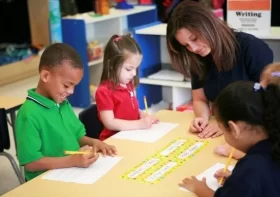Mum and Dad will just have to deal with it

In the modern era of parenting, the inclination to protect children from every conceivable danger has become a prevailing trend. The fear of potential harm often leads parents to adopt an overly cautious approach, limiting their children’s exposure to risk and adventure. However, it is crucial to recognize that taking risks is an integral part of a child’s development. In this essay, we will explore the significance of embracing risk, arguing that parents should allow their children the freedom to explore, learn, and grow through taking risks.
The Nature of Risk and Its Importance:
Risk-taking is a fundamental aspect of human development, fostering resilience, adaptability, and problem-solving skills. When children engage in activities that involve an element of risk, they learn to navigate challenges and develop a sense of autonomy. Whether it’s climbing a tree, riding a bike, or participating in team sports, these experiences contribute to the development of physical, cognitive, and emotional skills.
Physical Development:
Engaging in activities with an element of risk promotes physical development in children. Climbing, running, and jumping are activities that not only enhance motor skills but also contribute to the development of coordination and balance. These experiences lay the foundation for a healthy and active lifestyle, reducing the risk of obesity and related health issues.
Cognitive Development:
Taking risks stimulates cognitive development by encouraging problem-solving and decision-making. When faced with challenges, children learn to assess situations, make informed choices, and adapt their strategies accordingly. These cognitive skills are crucial for academic success and provide a strong foundation for future challenges in both education and the workplace.
Emotional Resilience:
Exposing children to manageable risks helps them develop emotional resilience. Overcoming fears and setbacks in a controlled environment allows children to build confidence and self-esteem. Learning to cope with failure and disappointment is an essential life skill that can only be acquired through facing challenges and taking risks.
Social Skills:
Many risky activities involve social interaction, fostering the development of teamwork, communication, and cooperation. Team sports, for example, provide an opportunity for children to work collaboratively, understand the importance of fair play, and build lasting friendships. These social skills are invaluable in navigating the complexities of adult relationships later in life.
Balancing Risk and Safety:
While advocating for embracing risk, it is essential to acknowledge the importance of balancing risk with safety. Parents should create an environment where children can explore and take risks within reasonable limits. This involves assessing the child’s age, maturity, and abilities, as well as ensuring that appropriate safety measures are in place.
Parental Concerns and Overprotection:
Despite the benefits of risk-taking, parents often grapple with concerns about their children’s safety. It is crucial to distinguish between genuine risks that promote development and those that pose a serious threat. Overprotective parenting can hinder a child’s ability to navigate the challenges of the real world, potentially leading to anxiety and a lack of independence.
Conclusion:
In conclusion, embracing risk is essential for the holistic development of children. Parents play a pivotal role in creating an environment where children can explore and learn through taking risks. By fostering physical, cognitive, and emotional development, allowing children to take risks contributes to the cultivation of resilient, independent, and well-rounded individuals. While safety remains a priority, it is crucial for parents to strike a balance and recognize that a certain level of risk is not only acceptable but beneficial for a child’s overall growth and well-being. As parents, we must embrace the notion that our children need to take risks, even if it means stepping out of our comfort zones, trusting in their abilities, and allowing them the freedom to explore the world around them.




Leave a Reply